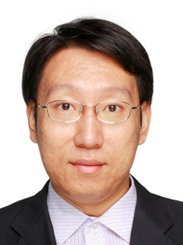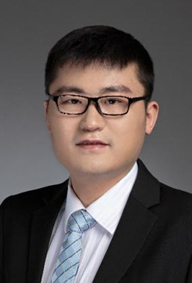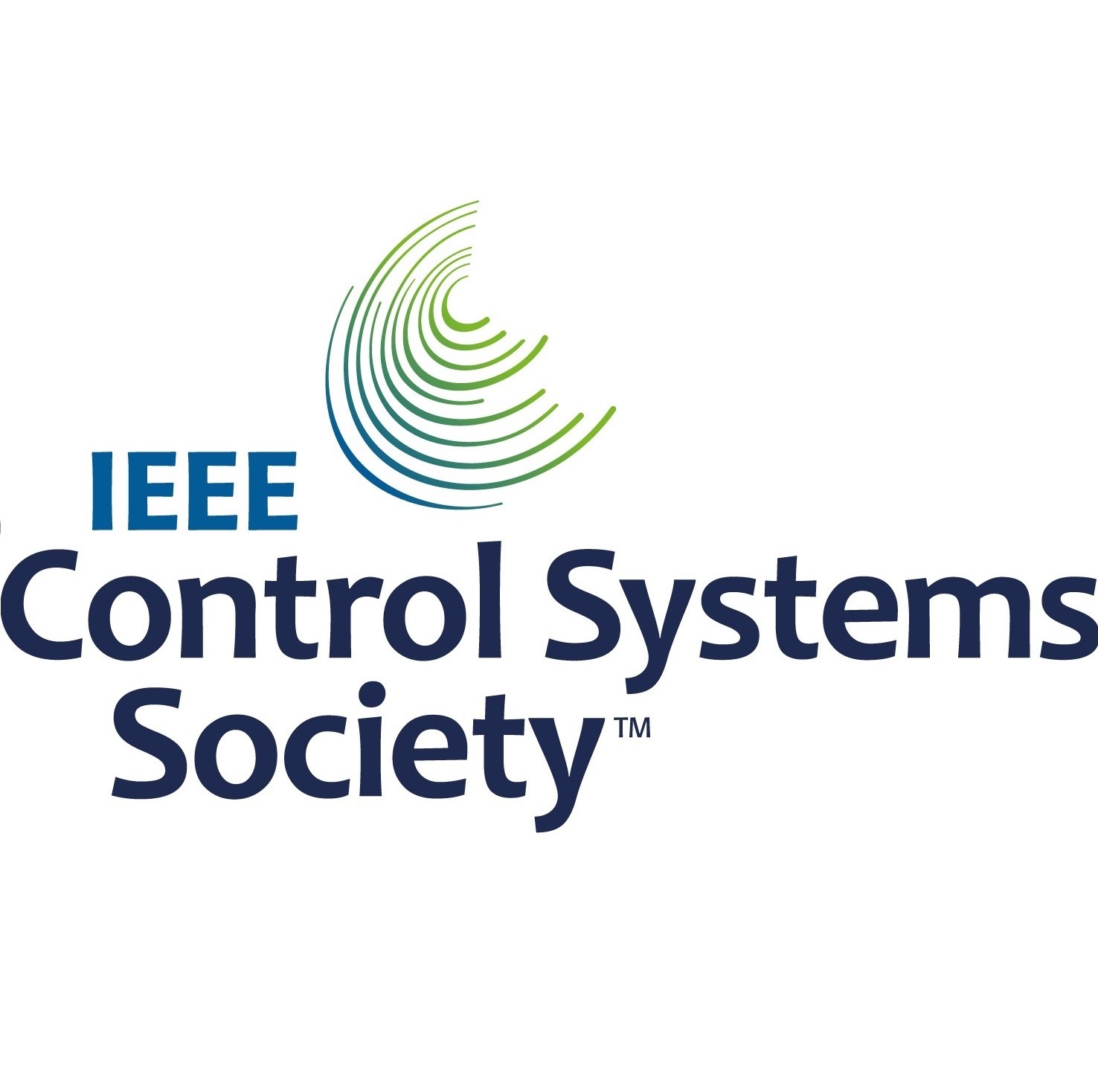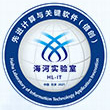Preconference Workshop 4:
Advanced Control Theory and Optimization
 Speaker:Xiang Chen, University of Windsor, Canada
Speaker:Xiang Chen, University of Windsor, Canada
Title:Multi-objective Complementary Control
Abstract: In this presentation, a multi-objective complementary control (MOCC) design framework is presented. This framework originates from YoulaKucera parameterization in transfer functions and is extended to state space description. In particular, a state-space solution is first developed for a new stabilizing control structure consisting of two arbitrarily designed independent controllers and a Youla-Kucera type parameter (Qparameter) which is constructed to assemble two independent controllers. It is then shown that these two independent controllers operate in a naturally complementary way, thanks to coordination function of the specifically constructed Q-parameter as modulated by the residue output signal reflecting modeling error, when multi-objective performances are considered. Various examples are presented to illustrate the applications and advantages of this new multi-objective complementary framework to linear and nonlinear problems. This new framework is a breakthrough in contrast with traditional trade-off control design.
Biography: Xiang Chen received M. Sc. and Ph. D. degree in system and control from Louisiana State University in 1996 and 1998. He held cross-appointed positions in Department of Electrical and Computer Engineering and Department of Mechanical, Automotive and Materials Engineering at the University of Windsor, Canada, and is currently a Professor in the Department of Electrical and Computer Engineering. He has made fundamental contribution to robust control, Gaussian filtering and control, control of nonlinear systems with bifurcation, networked control system, and optimization of field perception and sensing networks. He has also made significant contribution to applications of control and optimization in automotive and manufacturing systems, through extensive collaborative research and development activities with automotive, robotics, and manufacturing industries. Some of the deliverables have been transferred into technological product lines of relevant companies. He served Senior Editor for the IEEE/ASME Transactions on Mechatronics (TMECH) and is currently serving in Managing Committee of TMECH. He also serves Associate Editors for SIAM Journal on Control and Optimization, IEEE Transactions on Automatic Control, International Journal of Intelligent Robotics and Applications, Control Theory and Technology (English Version), and Unmanned Systems. He received the New Opportunity Awards from the Canadian Foundation of Innovation (CFI) and from the Ontario Centre of Excellence--Materials and Manufacturing Ontario, 5 times Research Excellence Awards from the University of Windsor, the Award of Best Paper Finalist from 2017 IEEE/ASME International Conference on Advanced Intelligent Mechatronics (AIM 2017), and the Award of Best Student Paper Finalist (as the supervisor author) from 2015 ASME DSCC. His current research interests include multi-objective complementary optimization and control of systems with complexities, optimization and control of field perception and sensing networks and field sensor guided autonomous operations, as well as control applications to automotive systems, manufacturing systems, and autonomous vehicles. He is a registered Professional Engineer in Ontario, Canada.
 Speaker: Long Cheng, Institute of Automation, Chinese Academy of Sciences, China
Speaker: Long Cheng, Institute of Automation, Chinese Academy of Sciences, China
Title:Advances on Hand Exoskeletons: Design, Perception and Interaction
Abstract: Hand is one most important organ of human beings, which plays a critical role in daily lives. Meanwhile, the hands have a strong connection with the human’s nervous system. Therefore, the hand exoskeleton cannot only help the patients or the elderly to regain their hand functions in daily activities, but also serves as an important media of shaping the neural plasticity, which is valuable theoretically and practically. This talk discusses the technical challenges and progress on the mechanical design of the hand exoskeleton, the wearable sensors for measuring human’s movement and interaction, and some advanced interaction control algorithms.
Biography: Long Cheng received the B.S. (Hons.) degree in control engineering from Nankai University, Tianjin, China, in 2004, and the Ph.D. (Hons.) degree in control theory and control engineering from the Institute of Automation, Chinese Academy of Sciences, Beijing, China, in 2009. He is currently a Full Professor with the Institute of Automation, Chinese Academy of Sciences. He is also an adjunct Professor with University of Chinese Academy of Sciences. He has published over 200 technical papers in peer-refereed journals and prestigious conference proceedings. He was a recipient of the IEEE Transactions on Neural Networks Outstanding Paper Award from IEEE Computational Intelligence Society, the Aharon Katzir Young Investigator Award from International Neural Networks Society and the Young Researcher Award from Asian Pacific Neural Networks Society. Dr. Cheng is a Fellow of the IET. He is serving the IEEE Computational Intelligence Society Beijing Chapter Chair, the Associate Vice President of IEEE Systems, Man and Cybernetics Society. He is currently serving the Associate Editor/Editorial Board Member of IEEE Transactions on Cybernetics, IEEE Transactions on Automation Science and Engineering, IEEE Transactions on Cognitive and Developmental Systems, Science China Information Sciences, Science China Technological Sciences, and Acta Automatica Sinica. His current research interests include the rehabilitation robot, intelligent control and neural networks.
 Speaker:Tao Li, East China Normal University China
Speaker:Tao Li, East China Normal University China
Title:Decentralized cooperative online leaning with random observation matrices, communication graphs and time delays
Abstract: We analyze convergence of decentralized cooperative online learning algorithms by a network of multiple nodes via information exchanging in an uncertain environment. Each node has a linear observation of an unknown parameter with randomly time-varying observation matrices. The underlying communication network is modeled by a sequence of random digraphs and is subjected to nonuniform random time-varying delays in channels. Each node runs an online estimation algorithm consisting of a consensus term taking a weighted sum of its own estimate and neighbours’ delayed estimates, and an innovation term processing its own new measurement at each time step. Firstly, for the delay-free case, we show that the algorithm gains can be designed properly such that all nodes’ estimates converge to the true parameter in mean square and almost surely if the observation matrices and communication graphs satisfy the stochastic spatio-temporal persistence of excitation condition. Secondly, for the case with time delays, we introduce delay matrices to model the random time-varying communication delays between nodes. It is shown that under the stochastic spatio-temporal persistence of excitation condition, for any given bounded delays, proper algorithm gains can be designed to guarantee mean square convergence for the case with conditionally balanced digraphs.
Biography: Tao Li received the B.E. degree in automation from Nankai University, Tianjin, China, in 2004, and the Ph.D. degree in systems theory from the Academy of Mathematics and Systems Science, Chinese Academy of Sciences, Beijing, China, in 2009. Since January 2017, he has been with East China Normal University, Shanghai, China, where he is currently a Professor, School of Mathematical Sciences, and an affiliated faculty of the Institute of Mathematical Sciences of New York University, Shanghai. His current research interests include stochastic systems, cyber-physical multiagent systems, distributed algorithms, and game theory.
Dr. Li was a recipient of the 28th “Zhang Siying” Outstanding Youth Paper Award in 2016, the Best Paper Award of the 7th Asian Control Conference in 2009, and honorable mentioned as one of five finalists for the Young Author Prize of the 17th IFAC Congress in 2008. He received the 2009 Singapore Millennium Foundation Research Fellowship and the 2010 Australian Endeavor Research Fellowship. He was entitled Dongfang Distinguished Professor by Shanghai Municipality in 2012, received the Excellent Young Scholar Fund from NSFC in 2015, and was elected to the Chang Jiang Scholars Program, Ministry of Education, China, Youth Scholar in 2018. He now serves as Associate Editor for several journals, including Systems and Control Letters, IFAC Nonlinear Analysis: Hybrid Systems, and IEEE Control Systems Letters. He is a Member of the IFAC Technical Committee 1.5 on Networked Systems.
 Speaker:Ziyang Meng, Tsinghua University, China
Speaker:Ziyang Meng, Tsinghua University, China
Title:Advances in intelligent navigation techniques
Abstract: Artificial intelligence technology has propelled the development and application of unmanned systems. Autonomous navigation capability is fundamental for unmanned systems. Traditional navigation methods primarily rely on Global Navigation Satellite Systems (GNSS) or inertial sensor, which suffer from susceptibility to interference and rapid divergence issues. Utilizing artificial intelligence technology to enhance the autonomous navigation capability of unmanned systems through camera perception has become a current research focus. This report specifically presents the recent research progress of our research group in intelligent navigation technology. Firstly, for search and rescue tasks, a remote sensing image matching and localization technique based on convolutional neural networks is proposed. Secondly, for autonomous driving and unmanned delivery, the robustness of visual Simultaneous Localization and Mapping (SLAM) technology is improved by utilizing structured features and multi-source fusion. The efficiency of visual SLAM is enhanced through hardware acceleration and time synchronization. Lastly, for indoor services and human-machine interaction, end-to-end navigation technology is developed on ultra-low power platforms. It is expected to provide more accurate, faster, and robust navigation solutions for different unmanned system platforms.
Biography: Ziyang Meng is currently an associate professor with the Department of Precision Instrument, Tsinghua University, China. He received his B.S. degree with honors from Huazhong University of Science & Technology, Wuhan, China, in 2006, and Ph.D. degree from Tsinghua University, Beijing, China, in 2010. He was an exchange Ph.D. student at Utah State University, Logan, USA from 2008 to 2009. Prior to joining Tsinghua University, he held postdoc, researcher, and Humboldt research fellow positions at, respectively, Shanghai Jiao Tong University, Shanghai, China, KTH Royal Institute of Technology, Stockholm, Sweden, and Technical University of Munich, Munich, Germany from 2010- 2015. His research interests include distributed control and optimization, space science, and intelligent navigation technique. He serves as associate editors for Systems & Control Letters and IET Control Theory & Applications. He is a Senior Member of IEEE and Fellow of IET.

















